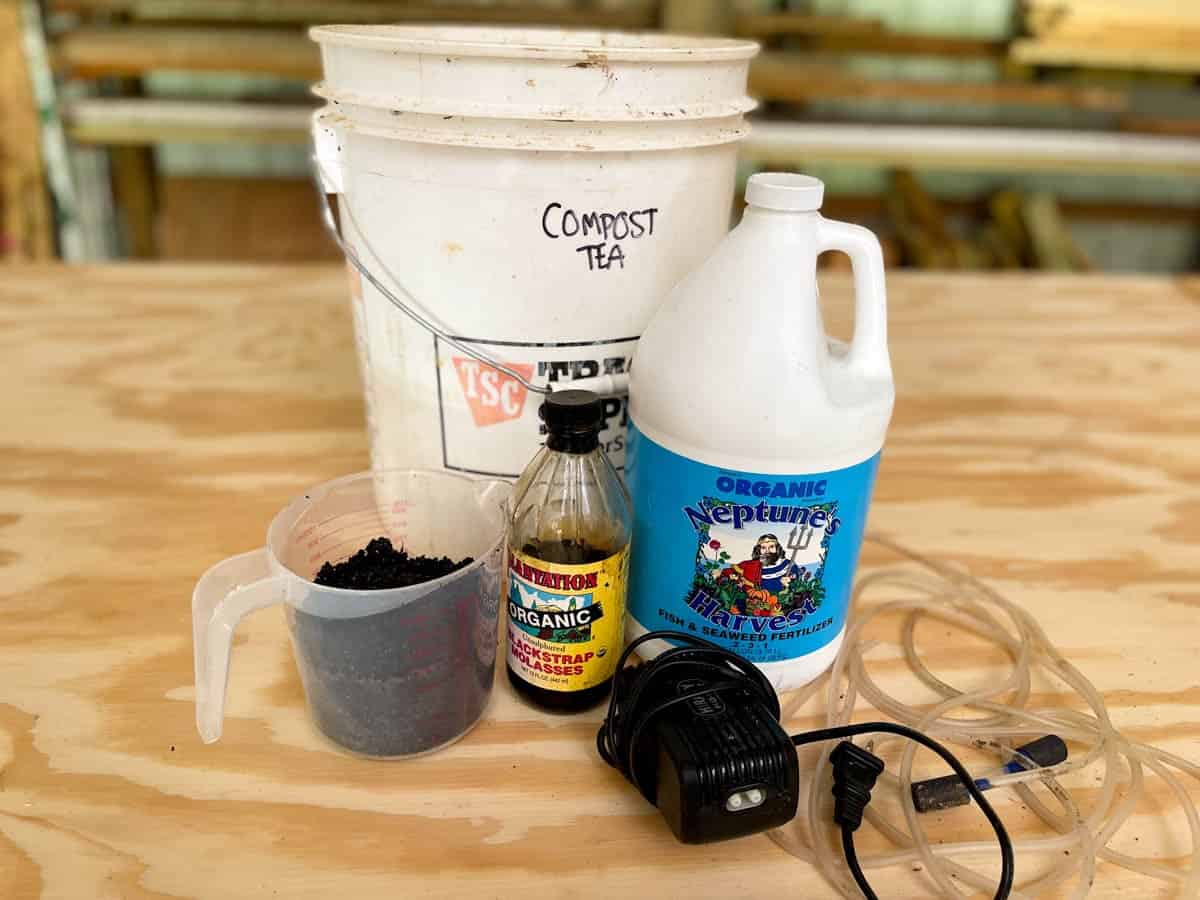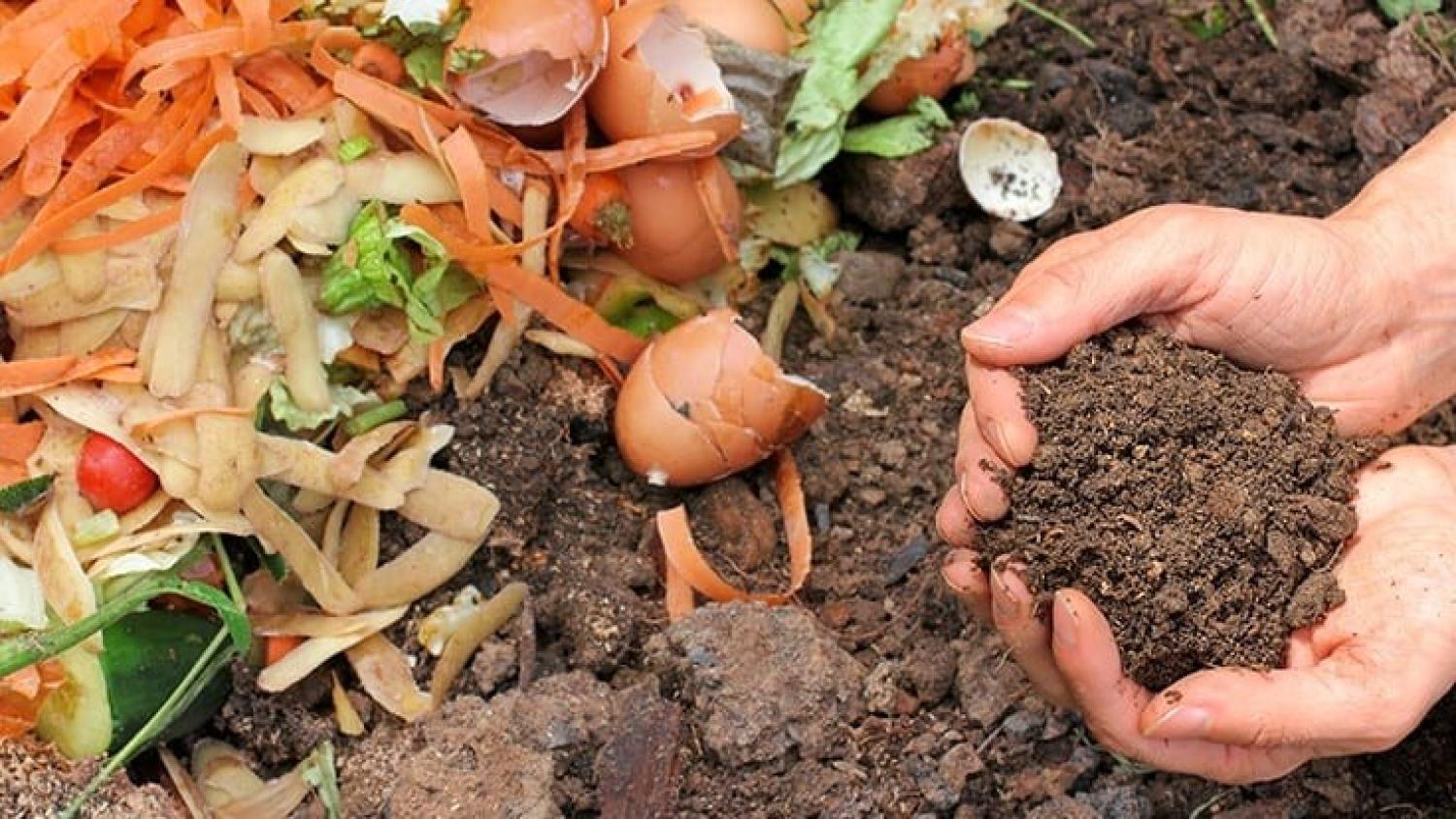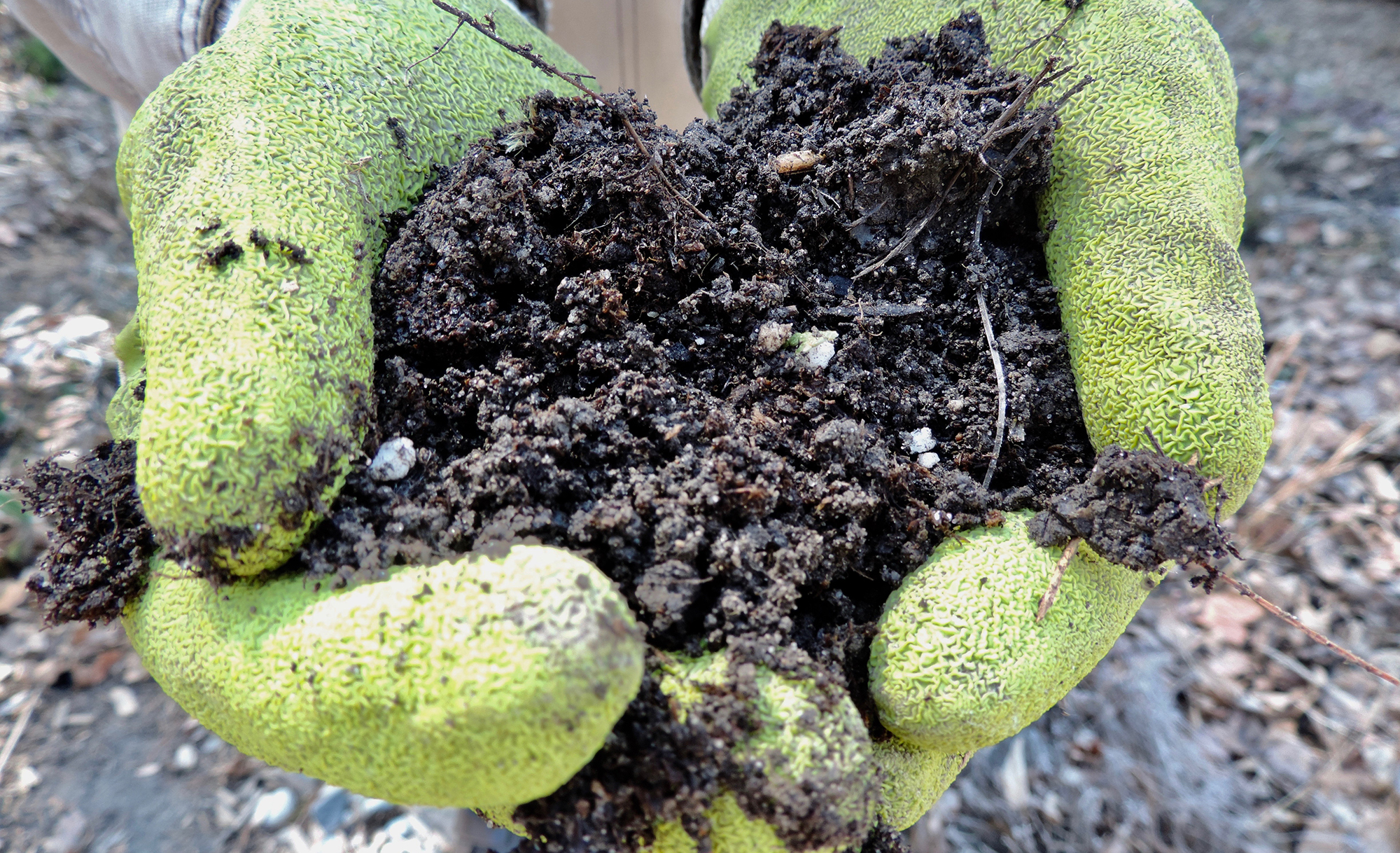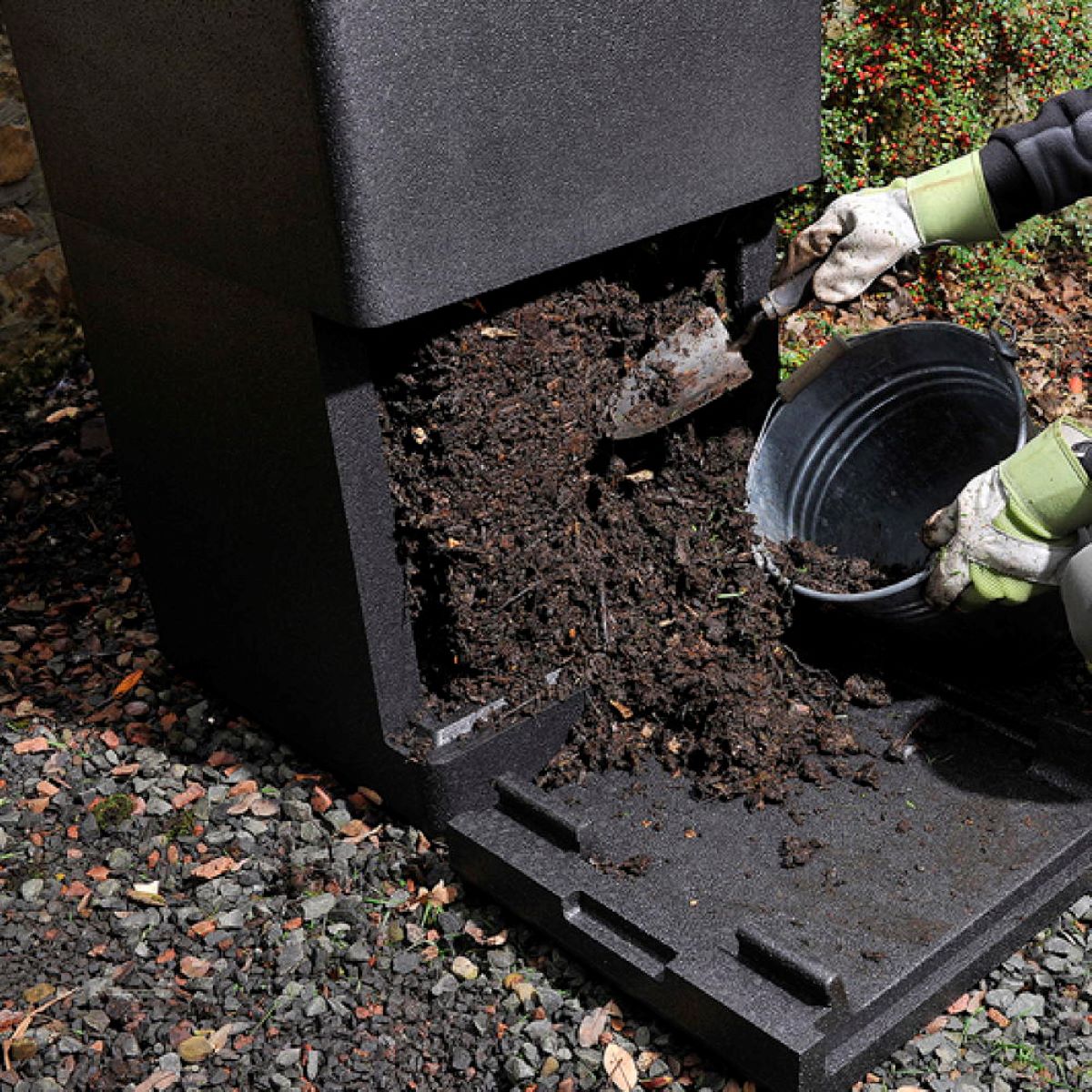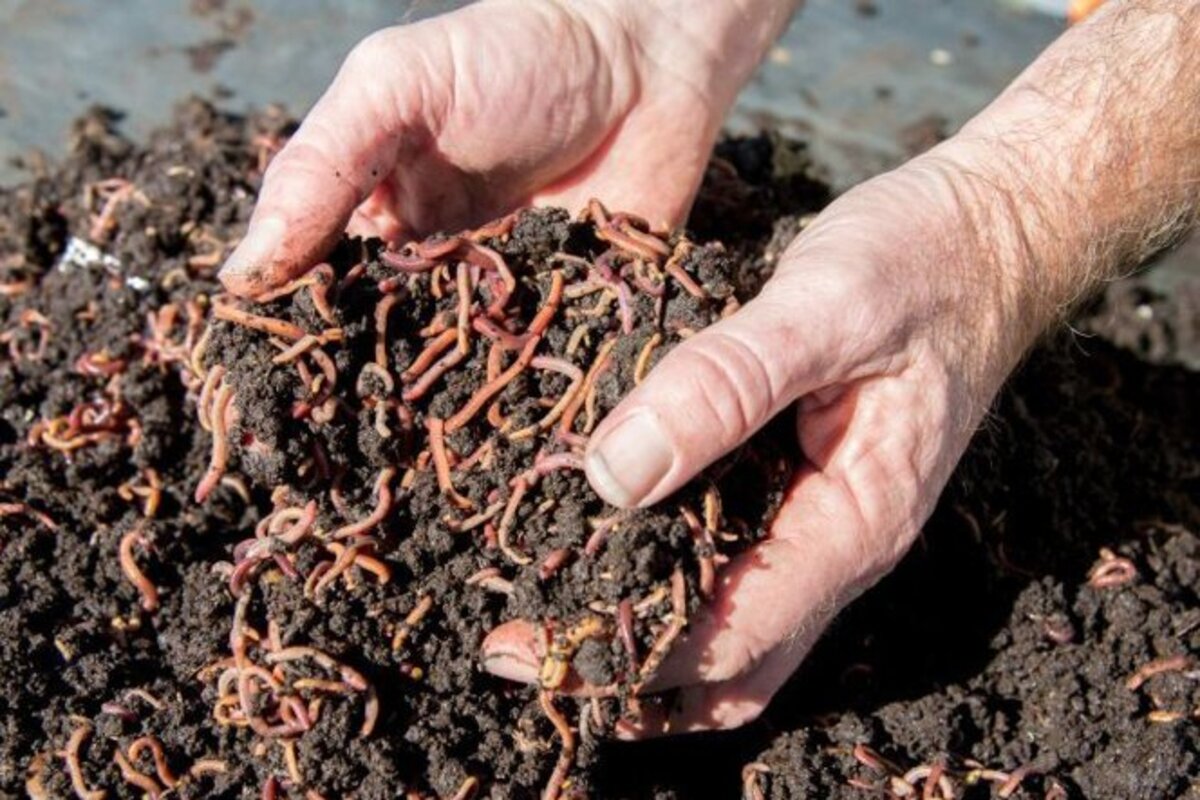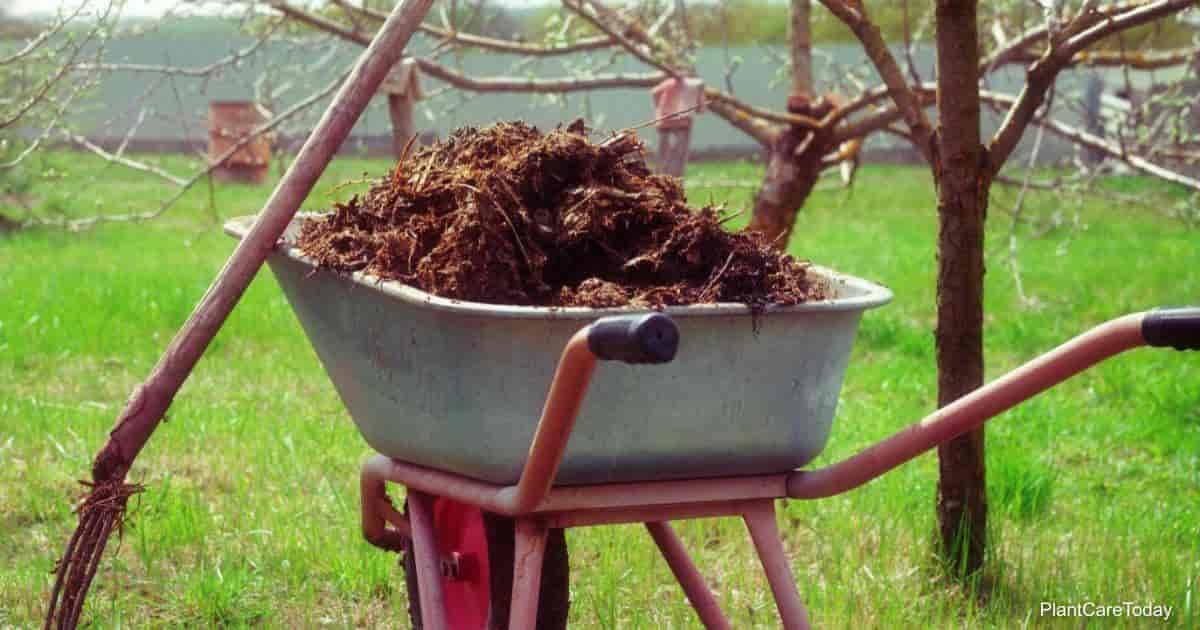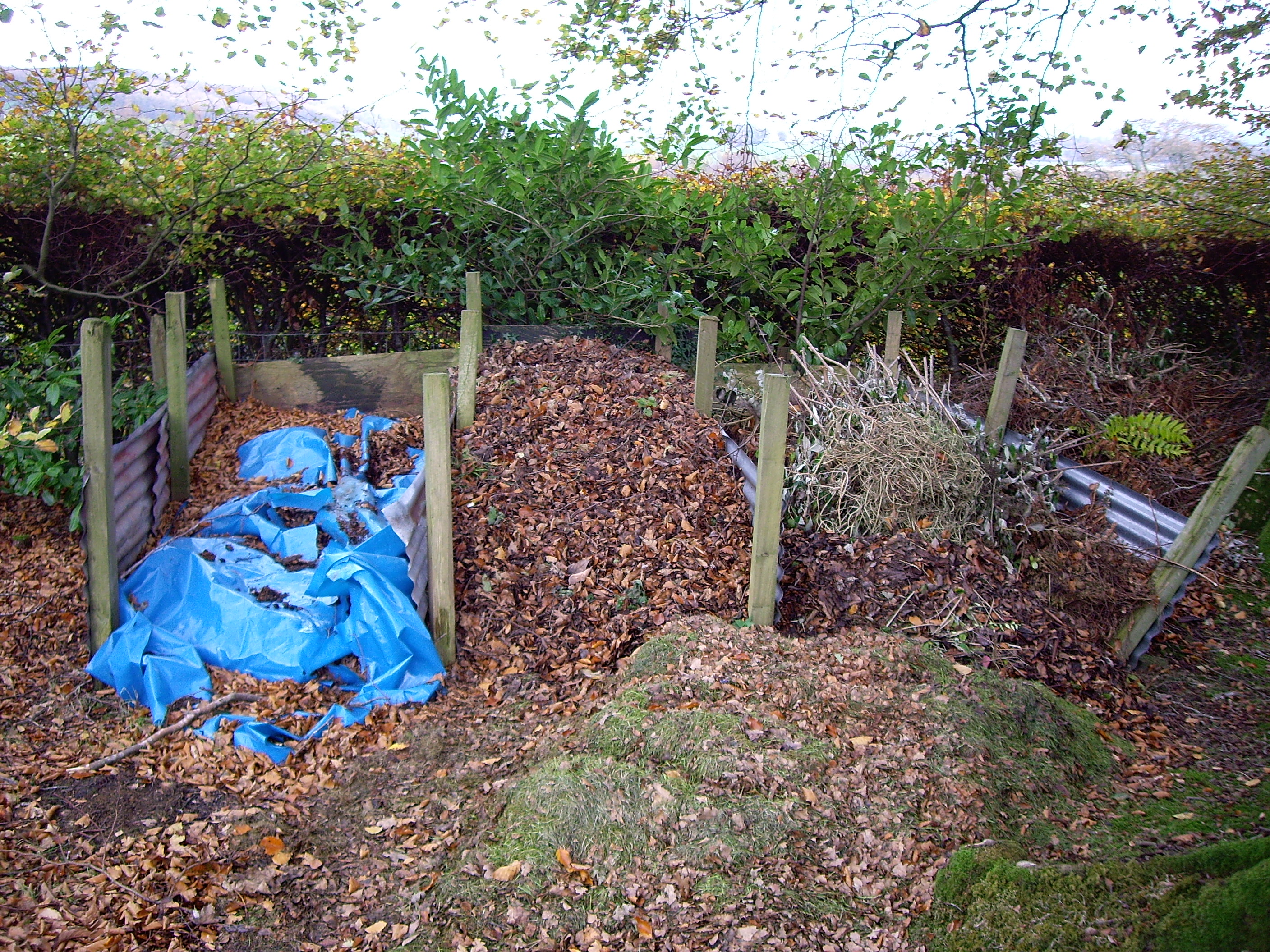Home>Gardening Tips and Tricks>How Do You Make Compost Tea
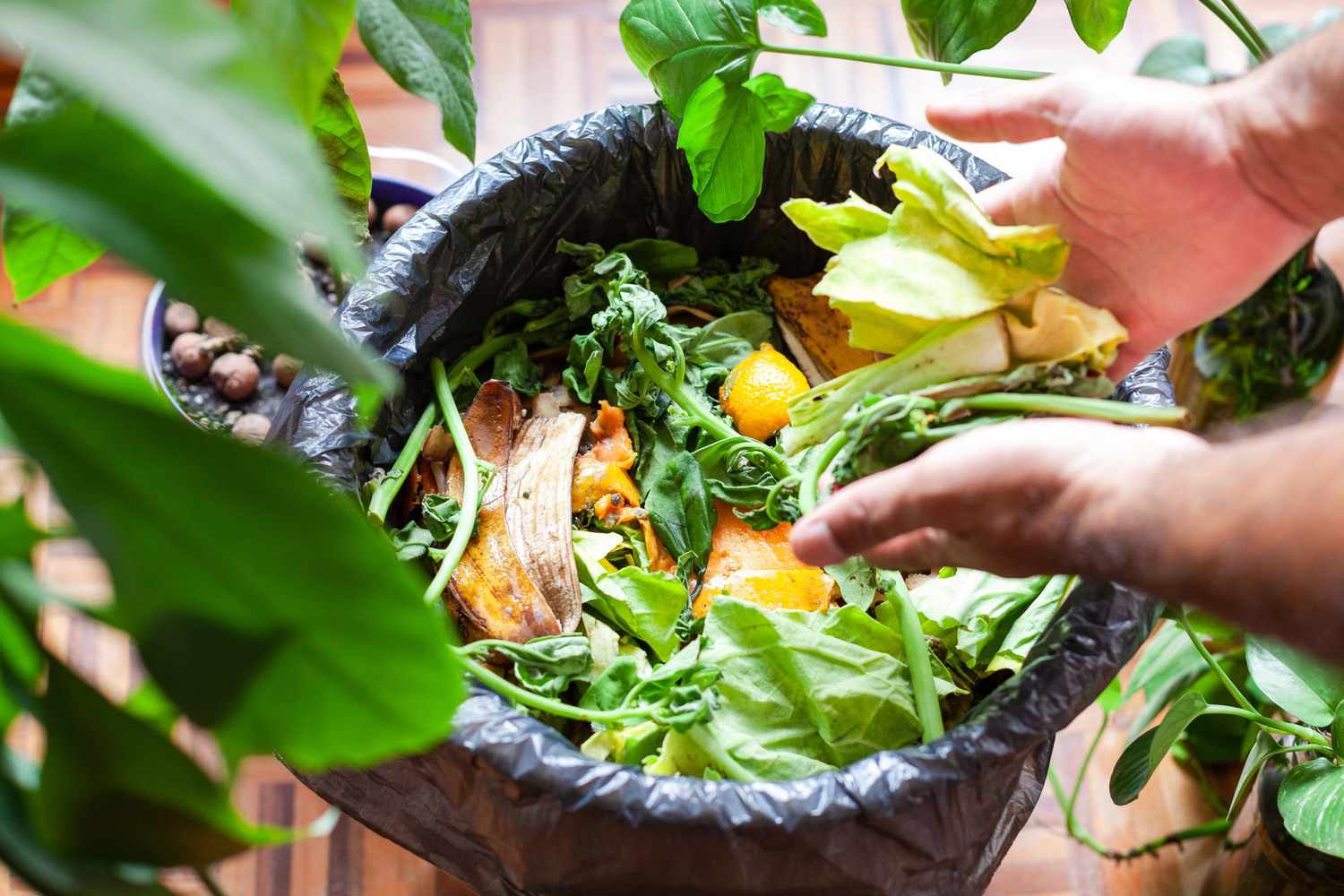

Gardening Tips and Tricks
How Do You Make Compost Tea
Modified: January 22, 2024
Learn how to make compost tea and solve your gardening problems with this simple and effective method. Boost your soil's health and promote plant growth today.
(Many of the links in this article redirect to a specific reviewed product. Your purchase of these products through affiliate links helps to generate commission for Chicagolandgardening.com, at no extra cost. Learn more)
Table of Contents
Introduction
Welcome to the world of compost tea, a magical elixir that can give your plants a boost and improve the health of your garden. Compost tea is gaining popularity among gardeners and farmers alike due to its numerous benefits for plant growth and soil health. In this article, we will explore what compost tea is, its benefits, how to make it, and how to use it effectively.
Compost tea is essentially a liquid fertilizer made from steeping compost in water. It is a powerful natural solution that acts as a microbial inoculant, delivering beneficial microorganisms and nutrients directly to the plants’ roots and soil. These microorganisms help break down organic matter, suppress pathogens, and improve nutrient availability. Compost tea can be thought of as a probiotic for plants, promoting a healthy soil ecosystem.
The benefits of using compost tea are numerous. First and foremost, it enriches the soil with a diverse array of beneficial microorganisms. These microbes enhance soil structure, making it more crumbly and porous, allowing for better water retention and root penetration. Additionally, the microorganisms in compost tea can help suppress harmful pathogens, reducing the risk of plant diseases. They also break down organic matter, releasing essential nutrients that are then available for plant uptake.
Another advantage of compost tea is its ability to improve overall plant health and vigor. By providing a nutrient-rich and microbe-filled environment, plants are better equipped to resist stress factors such as drought, pests, and diseases. Compost tea has also been shown to enhance plant growth, resulting in larger and more robust plants.
Making compost tea is relatively straightforward, and the ingredients are readily available. Generally, you will need compost, water, and a food source to feed the microorganisms. The compost should be rich in organic matter and should be composted thoroughly to eliminate any harmful pathogens. Some common food sources include molasses, fish hydrolysate, or seaweed extract.
What is Compost Tea?
Compost tea is a nutrient-rich liquid that is derived from steeping compost in water. It is often referred to as a “liquid gold” for plants, as it provides a concentrated dose of beneficial microorganisms and nutrients. The process of making compost tea involves extracting the microbial life and soluble nutrients from the compost and brewing them in water.
The goal of compost tea is to harness the power of microorganisms found in compost and deliver them directly to plants and soil. Compost itself is a valuable soil amendment, but by creating compost tea, we can amplify its benefits and make them more readily available to plants. The tea acts as a carrier for these beneficial microorganisms, increasing their numbers and ensuring they reach the roots and surrounding soil.
The microorganisms in compost tea consist of bacteria, fungi, protozoa, and nematodes. These microorganisms work in symbiosis with plants, helping with nutrient uptake, disease suppression, and overall plant health. When combined with proper soil management practices, compost tea can contribute to a thriving and resilient garden ecosystem.
Compost tea is often made using an aerated brewing method, which involves adding a constant supply of oxygen to the mixture. This aeration process encourages the growth of beneficial aerobic microorganisms, while suppressing the growth of harmful anaerobic microorganisms. The result is a well-balanced tea that boosts soil fertility and plant vitality.
One important aspect of compost tea is its diversity of microorganisms. The more diverse the microbial population, the better the tea’s ability to support plant growth and suppress diseases. This is why it is crucial to use properly composted materials as the base for brewing compost tea. Proper composting ensures that the abundance of beneficial microorganisms is present in the final tea.
It’s also worth noting that compost tea is not meant to replace solid compost application. Rather, it is an additional tool in the gardener’s toolbox to provide a concentrated dose of beneficial microorganisms and nutrients. Regular applications of both compost and compost tea can help build and maintain a healthy, biologically active soil ecosystem.
Benefits of Compost Tea
Compost tea offers a wide range of benefits for plants, soil, and the overall health of your garden. Let’s explore some of the key advantages of incorporating compost tea into your gardening routine:
1. Increased nutrient availability: Compost tea provides a concentrated source of nutrients that are easily absorbed by plants. The microorganisms present in the tea break down organic matter, releasing essential nutrients such as nitrogen, phosphorus, and potassium. This enhanced nutrient availability promotes healthy plant growth and development.
2. Improved soil structure: The microbial activity in compost tea promotes soil aggregation, making the soil more friable and crumbly. This improved soil structure enhances water infiltration and retention, reducing the risk of erosion and water runoff. It also allows for better root penetration, enabling plants to access moisture and nutrients more effectively.
3. Enhanced nutrient cycling: Compost tea helps foster a thriving soil ecosystem, where beneficial microorganisms break down organic matter and release nutrients. This promotes the natural cycling of nutrients in the soil, reducing the need for synthetic fertilizers. The continuous application of compost tea can contribute to long-term soil fertility and sustainability.
4. Disease suppression: The microorganisms present in compost tea act as natural antagonists against harmful pathogens. They can outcompete pathogenic organisms for resources and produce enzymes and compounds that inhibit their growth. Incorporating compost tea into your gardening practices can help suppress plant diseases, reducing the need for chemical fungicides.
5. Improved plant resilience: The beneficial microorganisms in compost tea can enhance the plant’s ability to withstand stress factors such as drought, pests, and diseases. They help strengthen the plant’s immune system and improve its overall vigor. This can result in healthier, more resilient plants that are less susceptible to damage.
6. Environmental sustainability: Using compost tea as a natural fertilizer reduces reliance on synthetic chemicals, which can have negative impacts on the environment and human health. Compost tea is an eco-friendly option that helps promote sustainable gardening practices, supporting biodiversity and soil health.
7. Cost-effective solution: Making your own compost tea is a cost-effective alternative to purchasing commercial fertilizers. It utilizes readily available materials such as compost and water, minimizing the need for expensive inputs. By recycling organic waste into compost tea, you can save money while still providing your plants with the nutrients they need.
These benefits highlight the value of incorporating compost tea into your gardening routine. By harnessing the power of beneficial microorganisms and nutrients, compost tea provides a natural and sustainable solution for promoting plant health and soil fertility.
Ingredients for Making Compost Tea
The ingredients required for making compost tea are relatively simple and can be easily obtained. Here are the key components you will need:
1. Compost: The foundation of compost tea is quality compost. It should be well-aged and fully decomposed to ensure the presence of beneficial microorganisms. Use compost that is rich in organic matter, such as kitchen scraps, yard waste, and plant materials. Avoid using compost that contains animal waste, as it may introduce harmful pathogens into the tea.
2. Water: The water used for brewing compost tea should be free from chlorine or other chemicals that could harm the beneficial microbes. If your tap water contains chlorine, let it sit uncovered for 24 hours to allow the chlorine to dissipate before using it for brewing.
3. Food Source: Microorganisms in compost tea require a food source to flourish and multiply. A common food source is molasses, which provides the necessary sugars for microbial activity. Other options include fish hydrolysate, seaweed extract, or compost activators specifically designed for compost tea.
4. Aeration Equipment: To ensure the growth of beneficial aerobic microorganisms, aeration is essential. You will need an aeration device, such as an air pump or an aquarium bubbler, to infuse oxygen into the brewing mixture. This promotes the development of aerobic microbes while suppressing the growth of anaerobic microorganisms.
5. Brewing Container: Choose a brewing container that is large enough to hold the desired volume of compost tea. It should be made of a food-grade material such as plastic or glass. Avoid using metal containers, as they can react with the tea and affect its quality.
6. Straining Equipment: After the brewing process is complete, straining the tea helps remove any solid particles or large debris. You can use a fine-mesh bag or a strainer to accomplish this. The strained tea can be applied directly to plants or transferred to a sprayer for foliar application.
It’s important to note that the quality of the ingredients directly affects the quality of the compost tea. Ensure that the compost used is of high quality, free from contaminants and harmful pathogens. Using clean water and a reliable food source will also contribute to the success of your compost tea brewing process.
By gathering these simple ingredients and following the proper brewing methods, you will be able to create a nutrient-rich compost tea that will support the health and vitality of your plants and soil.
Methods for Making Compost Tea
There are several methods for making compost tea, each with its own benefits and considerations. Here are three commonly used methods:
1. Bucket Method: This is a simple and accessible method suitable for small-scale brewing. Start by filling a bucket with water, ensuring it is free from chlorine or other chemicals. Add a measured amount of compost into a mesh bag or directly into the water, depending on your preference. If desired, add a food source like molasses to the mixture. Place an aquarium bubbler or air stone into the bucket and connect it to an air pump to ensure proper aeration. Allow the mixture to brew for approximately 24 to 48 hours, stirring occasionally. Once the brewing period is complete, strain the compost tea to remove any solid particles. Apply the compost tea directly to the soil or use it as a foliar spray.
2. Vortex Brewer: The vortex brewer method utilizes a specialized brewing system that creates a swirling motion, maximizing the oxygenation of the tea. This method is suitable for larger-scale operations and can result in high-quality compost tea. The vortex brewer consists of a container with a central cone or helix that creates a vortex when water is pumped in. Compost is added to net bags or baskets placed within the vortex chamber. Aeration is provided by an air pump or a dedicated airlift system. The vortex motion helps promote the growth of beneficial organisms and enhances nutrient extraction. The brewing time can vary, but typically ranges from 12 to 48 hours. After brewing, strain the tea and apply it to the soil or plants as needed.
3. Continuous Brewer: The continuous brewer method is designed to maintain a consistent supply of compost tea over an extended period. This method involves using a dedicated compost tea brewer that continuously circulates the compost tea through aeration and agitation. The brewer consists of a container with a built-in pump and air stones or diffusers. Compost is placed in a mesh bag or basket within the brewer, and water is continuously pumped and aerated. The compost tea is circulated for a predetermined period, usually ranging from 12 hours to several days, before it is ready for use. As the tea is constantly being circulated and aerated, it can be harvested as needed, ensuring a steady supply of fresh compost tea throughout the growing season.
When choosing a method for making compost tea, consider factors such as scale of production, available equipment, and the desired volume of tea. Whichever method you choose, remember to monitor brewing time, aeration, and strain the tea before application.
Experimenting with different methods and adjusting brewing parameters can help you fine-tune your compost tea brewing process and achieve optimal results for your garden.
Application of Compost Tea
Compost tea can be applied to plants and soil in various ways to maximize its benefits. Here are some common applications of compost tea:
1. Soil Drench: One of the most common methods of applying compost tea is through a soil drench. Simply pour the tea around the base of plants, allowing it to slowly penetrate the soil. This method delivers beneficial microorganisms and nutrients directly to the root zone, promoting healthy root development and overall plant growth. Soil drenching is particularly effective for establishing new plants or revitalizing stressed ones.
2. Foliar Spray: Compost tea can also be used as a foliar spray, meaning it is applied directly to the leaves of plants. When sprayed onto the foliage, the tea provides a quick dose of nutrients and introduces beneficial microorganisms to the leaf surface. This method enhances leaf health, improves nutrient absorption, and helps control certain foliar diseases. It is important to apply foliar sprays during the early morning or late afternoon to prevent excessive moisture on the leaves, which can potentially encourage disease development.
3. Seed Soaking: Another application method is seed soaking, which involves immersing seeds in compost tea prior to planting. By soaking the seeds, you can introduce beneficial microorganisms that help protect against soil-borne pathogens and provide an extra boost of nutrients. Allow the seeds to soak in the tea for a few minutes or up to several hours before planting.
4. Transplant Solution: When transplanting seedlings or young plants, you can use compost tea as a transplant solution. Mix the tea with water in a ratio of 1:1 and gently pour it into the planting hole or around the root ball. This helps minimize transplant shock, encourages root establishment, and ensures the availability of beneficial microorganisms and nutrients during the critical early stages of growth.
5. Compost Tea Bath: For larger potted plants, such as trees or shrubs, a compost tea bath can be beneficial. Fill a bucket or container with compost tea and submerge the root ball or containerized plant into the tea for a few minutes or up to several hours. This allows the plant to absorb the beneficial microorganisms and nutrients directly through the root system, promoting healthy growth and vitality.
When applying compost tea, it is essential to ensure that it is used fresh and not stored for extended periods. The beneficial microorganisms in the tea require oxygen and can deteriorate over time. Remember to strain the tea before application to prevent clogging of sprayer nozzles or irrigation systems.
The frequency of application will vary depending on the specific needs of your plants, soil condition, and growing season. As a general guideline, applying compost tea every 2-4 weeks during the growing season can provide consistent benefits. Pay attention to the reactions of your plants, soil moisture levels, and adjust the application frequency accordingly.
By incorporating compost tea into your gardening practices, you can enhance soil fertility, promote plant health, and establish a more resilient garden ecosystem.
Tips for Using Compost Tea Effectively
To maximize the benefits of compost tea, it is important to use it effectively in your gardening practices. Here are some tips to help you get the most out of your compost tea:
1. Apply at the Right Time: It is best to apply compost tea during the early morning or late afternoon when temperatures are cooler. This allows the tea to be absorbed by the plants and soil without evaporating too quickly. Avoid applying compost tea during the peak heat of the day to prevent excessive moisture on the foliage, which can increase the risk of fungal diseases.
2. Use Freshly Brewed Compost Tea: Compost tea is most effective when it is used fresh. The beneficial microorganisms in the tea require oxygen to thrive, and their numbers can decline over time. Therefore, it is recommended to use the tea within 24-48 hours of brewing. Discard any leftover compost tea that has been left standing for an extended period.
3. Strain Before Application: Straining the compost tea before application helps remove any solid particles or debris, ensuring a smooth and even distribution. Use a fine-mesh bag, cheesecloth, or a strainer to strain the tea, preventing clogs in sprayers or irrigation systems.
4. Dilute the Tea: Depending on the strength of your compost tea and the specific plants you are treating, it is often beneficial to dilute the tea with water. This helps avoid overfeeding and reduces the risk of nutrient imbalances. For general applications, a dilution rate of 1:1 (equal parts tea and water) is a good starting point, but adjust as needed based on the requirements of your plants.
5. Cover Soil Surface: Applying compost tea directly to the soil surface helps introduce beneficial microorganisms and nutrients to the root zone. After applying compost tea, consider adding a layer of mulch to cover the soil surface. This helps conserve moisture, suppress weed growth, and create a favorable environment for the microorganisms to thrive.
6. Combine with Organic Matter: To further enhance the benefits of compost tea, consider combining its application with the addition of organic matter such as compost or composted mulch. This helps provide a continuous supply of organic materials, creating an ideal habitat for the beneficial microorganisms and supporting long-term soil health.
7. Monitor and Observe: Pay attention to how your plants and soil respond to compost tea applications. Observe the growth, health, and overall vigor of your plants. Adjust the frequency and strength of the compost tea applications based on the specific needs of your plants and the condition of your soil. Regular monitoring will allow you to fine-tune your compost tea application practices for optimum results.
By following these tips and using compost tea effectively, you can harness the power of beneficial microorganisms and nutrients to promote healthy plant growth, improve soil fertility, and cultivate a thriving garden.
Potential Drawbacks of Compost Tea
While compost tea offers numerous benefits, there are some potential drawbacks to consider when using it in your garden. Understanding these drawbacks will help you make informed decisions and manage any potential challenges that may arise:
1. Contamination Risk: If the compost used to make the tea is not properly composted or contains contaminants, there is a risk of spreading harmful pathogens to your plants. It is crucial to ensure that the compost used is fully decomposed, free from animal waste, and produced under proper conditions to eliminate any potential pathogens.
2. Imbalance of Microbial Populations: Compost tea contains a diverse range of microorganisms, including both beneficial and potentially harmful ones. If the tea is brewed improperly or for an extended period, there may be an imbalance in the microbial populations. This can lead to an overgrowth of certain microbes, potentially causing imbalances in the soil ecosystem.
3. Nutrient Imbalances: Although compost tea provides valuable nutrients to plants, excessive or improper application can result in nutrient imbalances. Over-application may lead to excessive nutrient levels, which can cause nutrient imbalances and potentially harm plant health. It is essential to follow proper dilution rates and monitor the response of your plants to adjust nutrient applications accordingly.
4. Lack of Standardization: There is currently no standardized recipe or brewing process for compost tea, which can result in inconsistency in the quality and microbial content of the tea. The effectiveness of compost tea can vary depending on the source of compost, brewing methods, and other factors. It is important to conduct research and experiment with different techniques to find a method that works best for your specific needs.
5. Regulatory Considerations: In some regions, the use of compost tea may be subject to regulatory guidelines or restrictions. It is important to be aware of any local regulations or requirements regarding the use of compost tea in your area. This includes ensuring compliance with organic certification standards if you are using compost tea in certified organic production.
6. Seasonal Variations: The effectiveness of compost tea may vary depending on the time of year and environmental conditions. Some microorganisms present in compost tea may be more active and beneficial during certain seasons, while others may be less active. It is important to consider the seasonal variations and adjust application rates and timing accordingly to optimize the benefits of compost tea.
Despite these potential drawbacks, compost tea remains a valuable tool for promoting soil health and plant vitality. By understanding and managing these concerns, you can ensure the successful and effective use of compost tea in your gardening practices.
Conclusion
Compost tea is a powerful natural solution that can greatly benefit your garden and plants. By steeping compost in water and utilizing beneficial microorganisms, compost tea provides a concentrated dose of nutrients and microbes that promote soil health, improve plant growth, and enhance overall garden vitality.
Throughout this article, we have explored what compost tea is, its benefits, the ingredients needed for making it, different brewing methods, and effective application techniques. Compost tea enriches the soil with essential nutrients, improves soil structure, suppresses diseases, and increases the resilience of plants, all while promoting environmentally sustainable gardening practices.
When making and using compost tea, it is important to take certain considerations into account. Ensuring the quality of the compost used, managing brewing processes properly, diluting the tea as needed, and monitoring plant responses are all crucial factors for maximizing the benefits and minimizing any potential drawbacks.
Remember, compost tea is a valuable addition to your gardening toolbox, but it should not replace the use of solid compost or other soil amendments. Using compost tea in conjunction with other organic practices, such as proper soil management, regular compost application, and adequate watering, will help create a thriving and sustainable garden ecosystem.
In conclusion, harness the power of compost tea to improve the health of your soil, boost plant growth, and cultivate a vibrant garden. Experiment with brewing methods, adjust application techniques, and observe the responses of your plants to optimize the benefits of compost tea in your specific gardening environment. With proper use and understanding, compost tea can be a game-changer in your gardening practices, providing results that are evident in the health and beauty of your plants.

